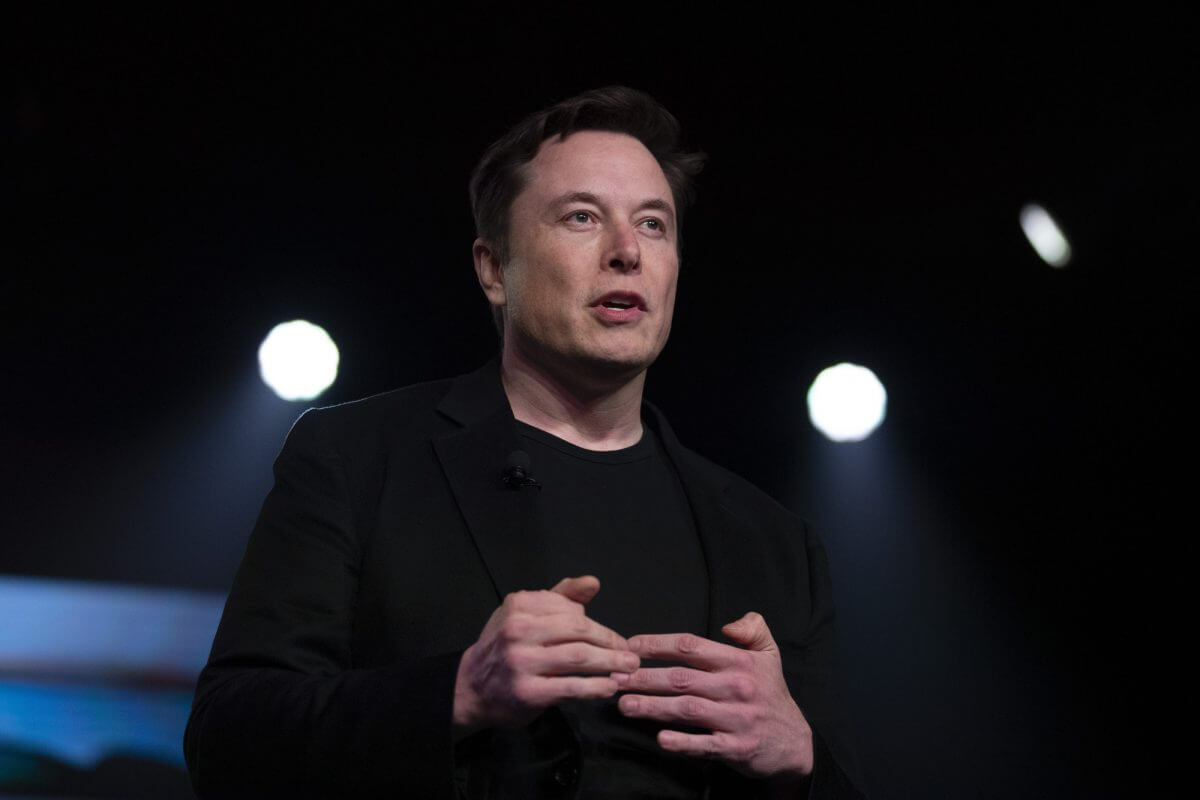
Elon Musk wants tech platforms to root out the special interest groups as if Silicon Valley is a disinterested observer. It’s not. | Source: AP Photo / Jae C. Hong
-
- Jack Dorsey recently asked Elon Musk at a Twitter conference: “If you were running Twitter, what would you do?:
- Musk’s chilling, dystopian answer: He wants social media giants to have the final say over who’s a “real person” and who isn’t.
- This terrifying suggestion is worse than ridiculous. It’s one of the most dangerous ideas in Silicon Valley.
Elon Musk wants Twitter to help you decide who’s “real” – and whose voices you should ignore. Or maybe even decide that for you. The Tesla and SpaceX CEO made the pronouncement at a Twitter employee conference this week.
How appropriate that he addressed the group as a floating head on a giant screen via live video chat! So he could also look the part of Big Brother from 1984 while feeding the audience that dystopian villain’s lines.
Who Would Be an ‘Unperson’ in Elon Musk’s Repressive Vision for Twitter?
In response to Jack Dorsey’s question: “If you were running Twitter, what would you do?”
Elon Musk answered:
Basically how do you tell if the feedback is real, or someone trying to manipulate the system… trying to sway public opinion… What do people actually want? …versus manipulation of the system by various interest groups.
He admits that:
It can be very difficult to figure out what’s real public opinion and what’s not.
Elon Musk’s views on social media are decidedly dystopian. | Source: REUTERS/Mike Blake
Right. So difficult, in fact, that it’s not something a centralized algorithm implementing a limited set of directives can manage. At best, it’s always going to be half-blind and clumsy. At worst, it could degenerate into a horrible censorship regime.
The Internet works because we, the users, decide. Not you. We need it to remain a wide-open frontier of free speech, not a high tech Soviet politburo.
Trolling Is Free Speech Too
Musk also has something against other people’s trolling, even though he’ll no doubt be allowed to continue trolling himself under the system he envisions:
I think it would be helpful to differentiate between real– like is this for real– is this a real person? Or is it a bot net, or a sort of troll army?
Okay, Elon.
Let’s make the algorithm’s first operation checking to see if a user gratuitously called someone else a “pedo guy.” They did? Troll detected.
Source: Twitter (now deleted)
The “weak” argument against Musk’s suggestion is that it’s obviously impossible in practice. How can anyone be sure whether someone is trolling or not?
One of the oldest axioms of Internet culture is Poe’s Law. It basically states it’s impossible to distinguish between an opinionated point of view and a parody of it.
And besides, even if you could be sure that someone’s trolling, why should Jack Dorsey get to decide that trolling is an invalid form of expression?
Sure, the First Amendment applies to acts of Congress, not private companies. But the entire Internet ethos is based on exercising that right to the fullest.
Silicon Valley Has an Agenda
Silicon Valley has an agenda. And it’s not just to eliminate bots. | Source: REUTERS/Anushree Fadnavis
CNN flogged Elon Musk’s suggestion to the masses:
The CEO of Tesla and SpaceX has a point: Twitter is overrun with bots and has struggled to stamp out disinformation campaigns, malicious behavior and spam.
That’s shorthand for, “We’re still heated that Donald Trump won the 2016 election.” Bot hysteria is a symptom of Trump Derangement Syndrome.
Democrats were literally traumatized when Donald Trump sunk their unsinkable ship in 2016. So they took refuge in a conspiracy theory. Russian bots tricked Americans into thinking Trump was more popular than he really was.
Thus you got CNN headlines like this:
Facebook estimates 126 million people were served content from Russia-linked pages
This headline is misleading. It sounds like a massive interference in the 2016 election. You have to scroll halfway down the article to get the straight facts:
This equals about four-thousandths of one percent (0.004%) of content in News Feed, or approximately 1 out of 23,000 pieces of content. Put another way, if each of these posts were a commercial on television, you’d have to watch more than 600 hours of television to see something from the IRA.
Partisan propaganda is infecting Silicon Valley thinking about how tech platforms should operate. That’s not good. They didn’t like an election result, so now Elon Musk wants them to decide who’s “real” and who’s a “troll.” This is a slippery slope to big tech censorship.
Elon Musk wants tech platforms to root out the special interest groups as if Silicon Valley is a disinterested observer. But Democrats are vastly over-represented among employees of big tech companies.
Manipulating the system is what we’re all trying to do when we engage with it. We’re all trying to change the world by sharing our ideas.
The platforms should keep their hands off the conversation.
Disclaimer: The opinions in this article do not necessarily reflect the views of CCN.com.
This article was edited by Josiah Wilmoth.
Last modified: January 19, 2020 10:37 AM UTC






